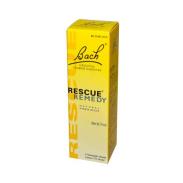It is important to understand what biological mechanisms contribute to an individual’s capacity to be resilient under conditions of extreme stress, such as those regularly experienced by soldiers, police, and fire fighters. Researchers from Yale University and the VA National Center for PTSD have worked closely with collaborators at the Special Forces Underwater Warfare Operations Center to study special operations soldiers enrolled in the military Combat Diver Qualification Course (CDQC).
Dehydroepiandrosterone, commonly known as DHEA, is a hormone that is secreted by the adrenal gland in response to stress. Although medical scientists have known for over a decade that DHEA provides beneficial, anti-stress effects in animals, they did not know until now whether this was also true for humans.
The scientists completed psychological and hormone assessments on a group of soldiers the day before they began the month-long CDQC, and immediately after their final pass/fail exam engaged in a highly stressful, nocturnal, underwater navigation exercise.
They found that soldiers with more DHEA performed better during the final underwater navigation exam than those with less DHEA. These findings are being published by Elsevier in the August 15th issue of Biological Psychiatry.
Underwater navigation is a task that relies on an area of the brain called the hippocampus that is very sensitive to the negative effects of stress. “Laboratory studies have shown that DHEA buffers against stress, in part, by modulating receptors in this region of the brain,” explained the researchers. “These findings are important in understanding why and how soldiers may differ in their ability to tolerate stress and also raise the possibility that, in the future, compounds like DHEA might be used to protect military personnel from the negative impact of operational stress.“
Clearly, additional research is still needed but these findings are a step forward in the quest to help prevent or better treat the symptoms of stress-related disorders that these high-risk individuals experience.
Journal reference: Biological Psychiatry, Volume 66, Issue 4
This article is for informational and educational purposes only; It is not intended to provide medical advice, diagnosis or treatment. Consult your doctor or healthcare professional.

Leave a comment